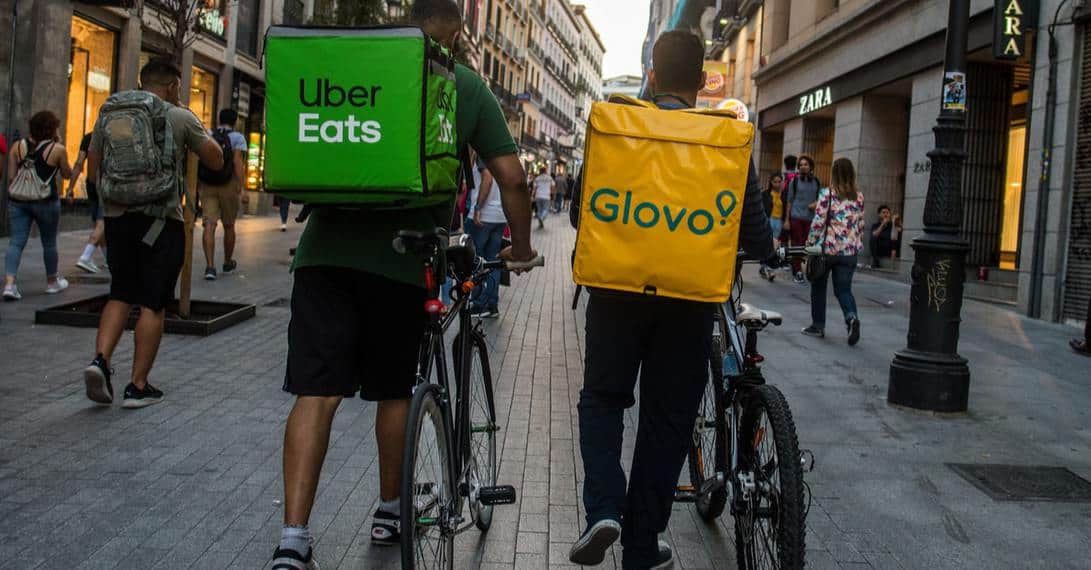The Ley de Riders, recognising delivery riders as employees, is now a reality. But is it a game-changer?

On July 21st, after less than a month of debate, the Spanish Congress approved the ‘riders’ law’, which presumes riders to be employees entitled to access to work-regulating algorithms, without any amendments to the initial government proposal. Enterprises were given three months to adjust to the legislation, which officially entered into force on August 12th.
Some platforms are however using various devices to minimise or nullify the effects the law should have in practice. This dodging of the presumption of employment may be anticipated in other jurisdictions across Europe which have followed the trend of assigning legal protection to platform workers as employees.
Ending operations
Shortly after the government launched the legislation, Deliveroo announced it was ending operations in Spain—a move partly driven by the new law and partly by its low market share in the country. This will result in more than 3,000 riders losing their jobs.
According to the presumption of employment established in last September’s Supreme Court judgment, however, the company will first have to hire the platform workers. And the redundancy payments and the entire process are likely to be problematic.
Glovo, the largest delivery platform in Spain, indicated it would only hire a relatively small part of its workforce—2,000 out of the 12,000 believed to be on its books—because the riders’ law only established a presumption of employment. In this vein the company has incorporated changes to its algorithm formula: riders will be able to log in ‘freely’ without selecting time-slots and adjust the price of the delivery slightly (the potential bidding war among riders has already generated protests), as well as being able to refuse deliveries and subcontract to other workers.
The platform’s lawyers believe these changes, by reinforcing the element of autonomy, accord with the distinction between workers and self-employed in the Supreme Court ruling. In the Yodel case, the European Court of Justice did find that a parcel delivery driver with the discretion to subcontract, decline deliveries, provide services to third parties or fix his own hours could be considered self-employed in the context of the Working Time Directive.
This strategy is however likely to backfire, in the medium to long term, in the domestic courts. Regardless of the small variations Glovo is introducing, the whole delivery system remains beholden to the company.
The Supreme Court made it crystal-clear that it is irrelevant whether the worker has certain freedoms regarding their performance—what matters to establish an employment relationship, in the end, is who owns the digital tool. As long as Glovo owns the application and its algorithm, which are the means to connect clients and riders and calculate the prices of the delivery—even if these can be slightly adjusted—there will be subordination and thus an employment relationship.
Different tack
Taking a different tack, Uber Eats has reached agreements to subcontract its riders from third-party distributor companies. A backstop is provided here by a prior judgment ending the possibility of deploying temporary contracts via subcontracting for work or service of indefinite duration. This strategy is in any event also likely to be contested as fraudulent in court: the subcontracting company offers virtually nothing, while the platform connects the client and riders, assigns the tasks through its algorithm and ultimately sets the prices of the delivery services.
As far as instituting the presumption of employment goes, it seems the riders’ law has generated a wave of bad faith on the side of the platforms, with legal battles to come.
Before the legislation, the Supreme Court had already rejected an appeal by Deliveroo over its refusal to make redundancy payments to dismissed riders, although it seems the platform is still trying to escape making such payments to those laid off after its exit move. The negotiations will become public in October.
CCOO—one of the main Spanish trade unions—has already reported Glovo’s strategy before a labour inspectorate for illegal employment practices. This will probably end up in the courts, which are likely in that case to support the union. Riders’ associations are meanwhile getting ready to sue Uber Eats for dismissal and illegal transfer—another fight destined to go to court.
Further cases and labour inspections are unfortunately still needed to fight precariousness in platform-mediated work. But not all the news is gloomy.
Complying with the law
The other two platforms in the market have been getting down to complying with the new law. Stuart Delivery has promised to hire an important part of its fleet directly and to negotiate a collective agreement in the future. Just Eats, which had already eliminated bogus self-employment—albeit through subcontracting to a large extent—has pledged to hire directly more of its fleet, although the exact number remains unknown.
More importantly, Just Eats is negotiating a collective-bargaining agreement with the two major unions—the UGT and CCOO. Key to this negotiation is the second provision of the riders’ law, obliging platforms to give worker representatives access to the algorithm affecting working conditions. The UGT and CCOO will be able to use this information, such as on wage-fixing, task-distribution details and personal data collected from workers, to represent them adequately, should a collective agreement offer sufficient protection.
If not for the presumption of employment, the riders’ law is thus certainly a breakthrough in opening the black box of algorithms for the benefit of platform workers.
Ane Aranguiz is a post-doctoral researcher at Tilburg Law School and at the Faculty of Law of the University of Antwerp. She is a lecturer in European labour law at TLS and is currently working on two Horizon 2020 projects: WorkingYP and EuSocialCit.
